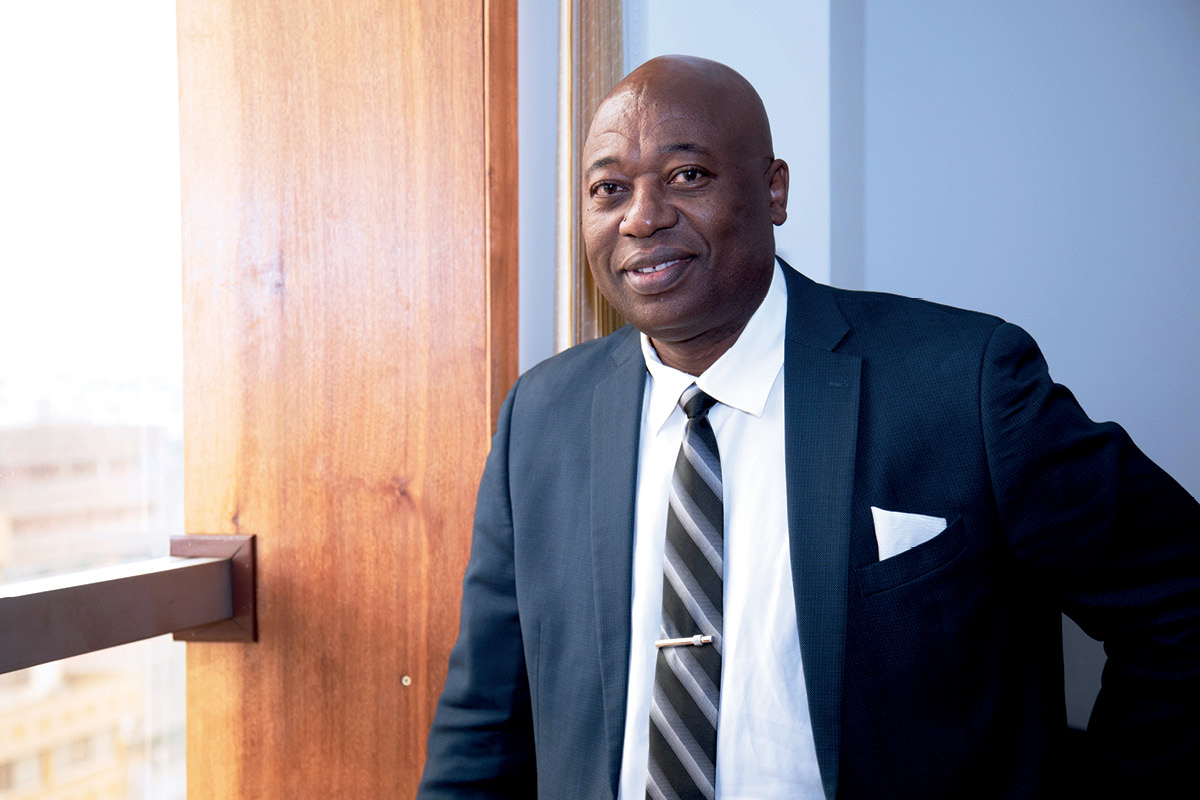What’s a liquid but also a gas, lighter (in weight) than water and bringing prosperity to the rural areas across Cameroon? It’s not magic, but it is solving a problem across low-income households in the country. It’s liquefied petroleum gas – LPG or LP gas, for short – and StarGas is packaging it in secure, bubblegum-pink cylinders for underprivileged communities.

“It’s our social responsibility,” StarGas Founder and CEO Augustin Kemfack says of bringing clean fuel to the disadvantaged communities across Cameroon. “Using LP gas for heating and cooking instead of traditional fuels like firewood and charcoal improves the quality of life, health and sanitation in these areas. Making the switch also liberates women and children by freeing up time spent collecting fuel, enabling them to pursue education. It’s important for us to overcome the barriers faced by these low-income households by reducing the high cost of the cylinders and making them more available.”
Augustin, who began his career in oil and gas nearly three decades ago – first as an engineer with oilfield services company Schlumberger, then joining oil and gas processing firm Exterran in the US as Business Development Manager for Western Africa before leading the firm in Gabon as Country Director – was intrigued by the possibilities of LPG.
“It was while working at these companies that my interest in bringing LP gas to Cameroon grew,” he shares. “I saw a huge business opportunity because compared to similar African countries, Cameroon had a very low penetration rate of LP gas. For example, in 2014, while the LP gas consumption was only four kilograms per capita in Cameroon, it was 10 kilograms per capita on the Ivory Coast and 57 kilograms in Morocco. On average, less than one household out of four is currently using LP gas in Cameroon.”
So, in 2012 Augustin left the corporate world and, in 2013, he started StarGas. “It was one of the greatest things I could have ever done for myself and my career,” he says. “I’m someone who prefers to lead than follow. It was only natural for me to create an environment where I could move freely and implement my own version of a business.”
And, it’s a version that’s doing exceedingly well. With its star product, the StarGas bottle – a technologically advanced gas cylinder – at the forefront, the company is not only pioneering the future of heating and cooking in Cameroon, it’s also providing a solution to the people’s problems.
Equipped with anti-theft, anti-explosive and easy-to-connect features, the StarGas cylinder is specially designed with users in mind. “Our uniqueness lies in our ability to listen to the consumers’ needs and create a high-quality product in response to those needs,” says Augustin.
“That’s why our product is equipped with an anti-siphoning valve to prevent theft and a unique pressure release valve that prevents explosions. The customer is the reason we installed a unique safety seal, guaranteeing the quantity of gas filled at our filling plant and why we have also equipped all of our cylinders with elevated indicator gauges to track the quantity of gas in each one. We’ve read the market and our customers’ needs, and we’ve delivered.”
“We’ve read the market and our customers’ needs, and we’ve delivered.”
Customer satisfaction was not the only consideration Augustin had in mind when building StarGas. “We went through a very lengthy and costly environmental social impact study prior to our launch. The company is sanctioned by a particular environmental conformity scheme granted to us by the government and we are reassessed every year.
“In our daily operations, we are very focused on proper waste management, achieving a high standard of personal protection for our employees and fire prevention. The waste we produce daily falls into three broad categories – whole waste, domestic waste and industrial waste. Each is segregated and disposed of correctly.”
As for the future, Augustin is focused on growth and bringing StarGas even closer to its customers. “In the coming years, it’s our mission to build next-door market filling stations in low-income areas,” he says.
“Doing so will not only make our product more easily accessible for our customers, it will also reduce our transportation costs. By aiming for these rural areas and not the urban, which is already saturated and very competitive, StarGas has a huge opportunity for growth.”


